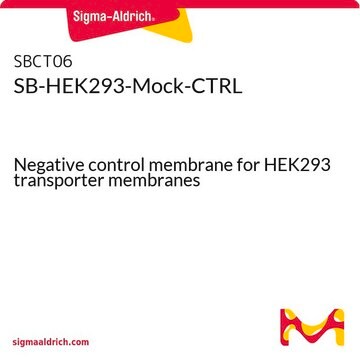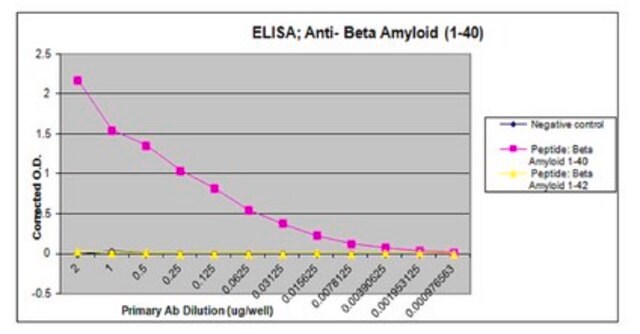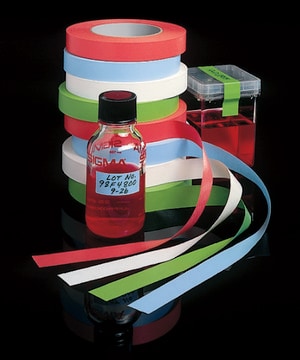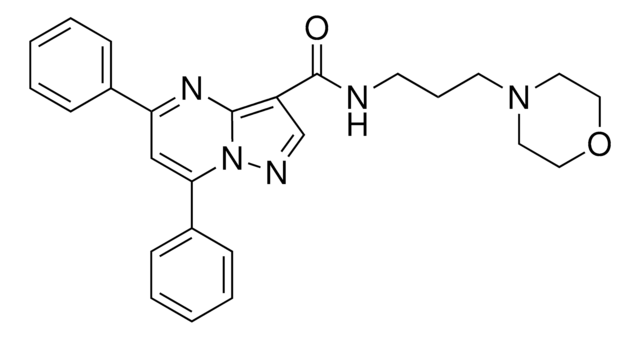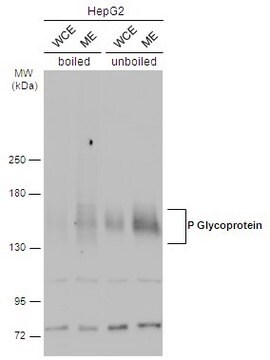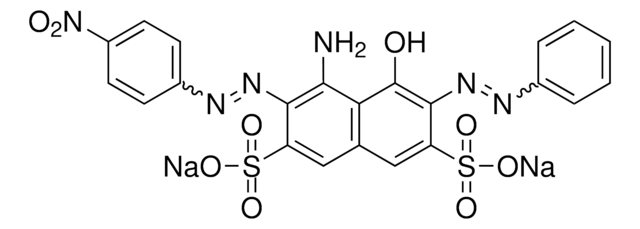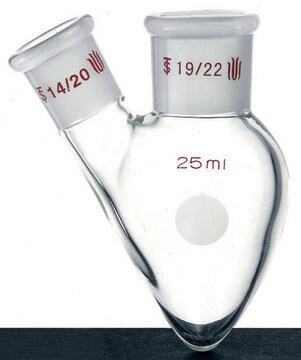추천 제품
재조합
expressed in HEK 293 cells
양식
liquid
농도
5 mg/mL
색상
off-white
UniProt 수납 번호
배송 상태
dry ice
저장 온도
−70°C
유전자 정보
human ... ABCC4(10257)
일반 설명
Membrane Preparations for Vesicular Transport Assays (VT) are suitable for general drug-efflux transporter interaction studies. Both substrate and inhibitor interactions can be assessed using vesicles. The success of substrate interaction studies strongly depends on the passive permeability of the compound. High permeability substrates might not be detected. Control Membranes with no-, or significantly lower transporter activity are also available.
Multidrug resistance associated protein 4 (MRP4), also known as ATP binding cassette subfamily C member 4 (ABCC4), is encoded by the gene mapped to human chromosome 13q32.1. The encoded protein belongs to the family of ATP-binding cassette transporters involved in ATP driven transmembranous transport of substrates.
애플리케이션
In the vesicular transport assay so-called "inside-out" membrane vesicles containing ABC transporters are applied. Incubating substrates of the respective efflux transporter in the presence of the inverted membrane vesicles and ATP will allow measuring accumulation of the substrates into the vesicles. In many cases radiolabeled reporter substrates are used but recently SOLVO developed the new PREDIVEZTM Vesicular Transport Kits that use fluorescent reporter substrates.
The standard vesicular transport assay is an inhibitory assay performed with cold test articles. This assay provides information on any interaction between the ABC transporter and the test article. The transport of the reporter substrate is measured in the presence of the test article (typically in 7 concentrations) and IC50 is defined as the concentration inhibiting the transport of the reporter substrate by 50%.
Should radiolabeled form of the investigated compound or adequate analytical methods (LC/MS, HPLC) be available, the vesicular transport assay may be performed in a direct format without the reporter substrate and may identify substrate nature of the test article. The vesicular transport substrate assay is a low throughput assay. It is suitable for low permeability test compounds as high permeability compounds may escape from the vesicles through the lipid bilayer.
The standard vesicular transport assay is an inhibitory assay performed with cold test articles. This assay provides information on any interaction between the ABC transporter and the test article. The transport of the reporter substrate is measured in the presence of the test article (typically in 7 concentrations) and IC50 is defined as the concentration inhibiting the transport of the reporter substrate by 50%.
Should radiolabeled form of the investigated compound or adequate analytical methods (LC/MS, HPLC) be available, the vesicular transport assay may be performed in a direct format without the reporter substrate and may identify substrate nature of the test article. The vesicular transport substrate assay is a low throughput assay. It is suitable for low permeability test compounds as high permeability compounds may escape from the vesicles through the lipid bilayer.
SB-MRP4-HEK293 has been used in vesicular transport study.
생화학적/생리학적 작용
Multidrug resistance associated protein 4 (MRP4) plays a vital role in substrate-specific transport of endogenous and exogenous substrates. It also has a role in non-neoplastic conditions. MRP4 also contributes to bile secretion and various other physiological roles. Upregulated expression of the gene is associated with the pancreatic cancer development. Thus, MRP4 can be considered as a potent therapeutic target for pancreatic cancer.
물리적 형태
Supplied as frozen membrane vesicles, containing 5 mg/ml membrane protein, labeled with volume, catalog number (transporter) and date of production.
법적 정보
Distributed for SOLVO Biotechnology, Inc.
Storage Class Code
10 - Combustible liquids
WGK
WGK 2
Flash Point (°F)
Not applicable
Flash Point (°C)
Not applicable
가장 최신 버전 중 하나를 선택하세요:
Efflux transport of chrysin and apigenin sulfates in HEK293 cells overexpressing SULT1A3: The role of multidrug resistance-associated protein 4 (MRP4/ABCC4)
Li W, et al.
Biochemical Pharmacology, 98(1), 203-214 (2015)
Erratum to: Multidrug resistance protein 4 (MRP4) expression in prostate cancer is associated with androgen signaling and decreases with tumor progression
Montani M, et al.
Virchows Archiv, 462(4), 437-443 (2013)
The ABCC4 gene is a promising target for pancreatic cancer therapy
Zhang Z, et al.
Gene, 491(2), 194-199 (2012)
Shu-Feng Zhou et al.
Current medicinal chemistry, 15(20), 1981-2039 (2008-08-12)
Human contains 49 ATP-binding cassette (ABC) transporter genes and the multidrug resistance associated proteins (MRP1/ABCC1, MRP2/ABCC2, MRP3/ABCC3, MRP4/ABCC4, MRP5/ABCC5, MRP6/ABCC6, MRP7/ABCC10, MRP8/ABCC11 and MRP9/ABCC12) belong to the ABCC family which contains 13 members. ABCC7 is cystic fibrosis transmembrane conductance regulator;
Christoph A Ritter et al.
Drug metabolism reviews, 37(1), 253-278 (2005-03-08)
Like other members of the multidrug resistance protein (MRP)/ABCC subfamily of ATP-binding cassette transporters, MRP4 (ABCC4) and MRP5 (ABCC5) are organic anion transporters. They have, however, the outstanding ability to transport nucleotides and nucleotide analogs. In vitro experiments using drug-selected
자사의 과학자팀은 생명 과학, 재료 과학, 화학 합성, 크로마토그래피, 분석 및 기타 많은 영역을 포함한 모든 과학 분야에 경험이 있습니다..
고객지원팀으로 연락바랍니다.